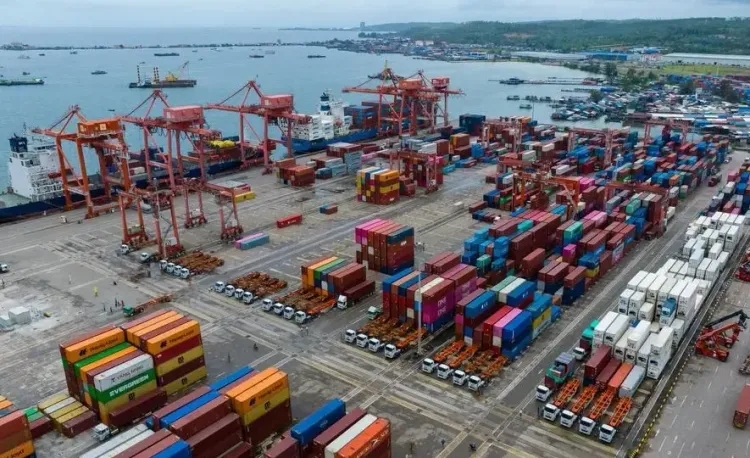63 Countries, Including India, Endorse Historic Global Carbon Tax for Shipping

Synopsis
Key Takeaways
- 63 nations endorsed the global carbon tax.
- India is among the participating countries.
- IMO is spearheading the initiative to combat climate change.
- The tax could yield up to $40 billion by 2030.
- Measures will be mandatory for large ships starting in 2027.
New Delhi, April 12 (NationPress) Sixty-three nations, including India, have voted in favor of the world's inaugural global carbon tax on the shipping sector, as mandated by the International Maritime Organisation (IMO).
The proposed regulations will establish a required marine fuel standard and a pricing system for greenhouse gas (GHG) emissions in the shipping industry to combat climate change.
During its 83rd session (MEPC 83) from April 7 to 11, the Marine Environment Protection Committee approved measures that include a new fuel standard for vessels and a worldwide emissions pricing mechanism.
Beginning in 2028, ships will need to transition to fuels with lower emissions or incur a fee for their pollution output. This tax is projected to generate as much as $40 billion by 2030.
The IMO Net-zero Framework is the first globally to integrate mandatory emissions limits and GHG pricing within an entire industry.
These regulations are expected to be formally adopted in October 2025 and will come into effect in 2027, applying to large ocean-going vessels over 5,000 gross tonnage, which account for 85 percent of all CO2 emissions from international shipping, according to an IMP statement.
IMO Secretary-General Arsenio Dominguez praised the collaborative spirit and dedication of Member States.
“The endorsement of draft amendments to MARPOL Annex VI, which mandates the IMO net-zero framework, signifies a crucial advancement in our joint efforts to tackle climate change, modernize shipping, and affirm that IMO fulfills its obligations,” said Dominguez.
“It is now crucial to continue our collaboration, foster dialogue, and listen to each other to establish the conditions necessary for a successful adoption,” he added.
The objective is to meet the climate goals outlined in the 2023 IMO strategy for reducing GHG emissions from ships, expedite the adoption of zero and near-zero GHG fuels, technologies, and energy sources, and ensure a fair and equitable transition.










